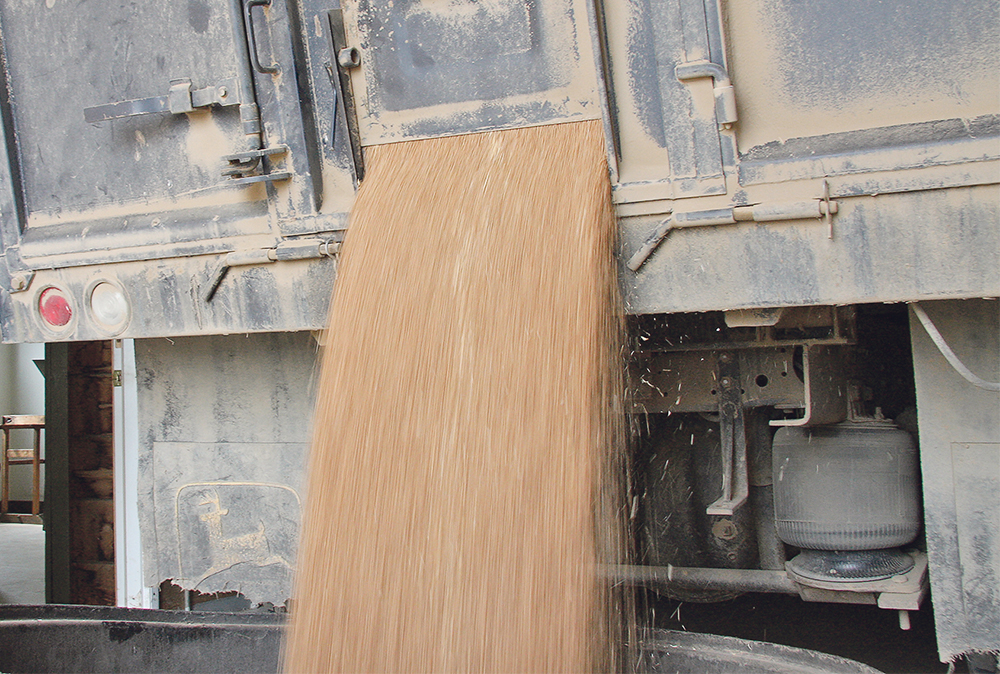There are a lot of awkward and excruciating conversations going on across Western Canada as drought-stricken farmers try to deal with crop contracts they won’t be able to meet.
I say “conversations” hoping there’s real two-way, back-and-forth discussions between farmers and grain buyers, and not the type of “conversations” in which one side is getting dictated to.
It’s hard to imagine a more unequal situation than a lone farmer sitting down with a company agent to deal with an obligation the farmer can’t meet. That’s a recipe for powerlessness, or at least a feeling of powerlessness. That’s a dangerous situation for anybody’s mental health.
Read Also

Critical growing season is ahead for soybeans
What the weather turns out to be in the United States is going to have a significant impact on Canadian producers’ prices
I’ve talked with a lot of farmers in the past couple weeks about this situation, and there are no easy answers for how to deal with this year’s crippling short crop.
In years when there’s lots of crop in other parts of the Prairies, there’s less need for most buyers to hold tight to contracts. But this year, if grain buyers have commitments of their own, there’s no easy place to go to fill shortfalls in their coverage. They have their own commitments they might be in danger of failing to meet.
So, what can you do in this awful predicament?
A common answer from many farmers seems to be: sit down and talk with the other side.
They might be a lot more reasonable than you fear. If you stay in touch with them and let them know your situation, they’ll probably appreciate it and cut you a break if they can. There might be options you might not have thought about.
Most will treat an early heads-up warning with grudging gratitude. A terse call after harvest leaves them less likely to try to make the best of the situation.
Here are some other answers I heard from farmers who have faced this situation:
If you go in with your fists swinging or your body turtled in the expectation that they’re going be swinging at you, it might be hard to have a conversation. Don’t assume things are going to go badly.
Give the guy on the other side of the table a chance to be decent. Who knows? Maybe he will be.
Friends and neighbours might have ideas. They might have experiences they can share.
They might even be able to take over some delivery commitments you’ve made. A number of farmers have told me they’ve found other producers to take over at least some of what they’re contracted to.
It also provides intelligence on what kind of situation buyers might be in, and how they have been dealing with situations like yours.
This year’s situation is extreme, but every year there are growers who end up in contract troubles when something goes wrong on the farm. Farm advisers and farm organizations know all about that. Some have put together tip sheets and lists of resources for farmers who find themselves in that sort of situation.
Right in front of me on my desk is the Canadian Canola Growers Association’s excellent A Practical Guide to Navigate Grain Contracts, which has a couple of pages on how to deal with an inability to meet the contract due to a production shortfall.
It contains useful information and is a good primer.
Most farmer-funded organizations can point you toward a number of resources.
Farmers can feel a lot of shame for not being able to meet an agreement. But if you just signed a reasonable contract for a portion of your average expected crop, which is something most advisers suggest farmers do, you have not done anything blame worthy and are suffering from bad luck with the weather.
That might not make the financial results any different, but you don’t need to be shamefaced about something many of your neighbours are also facing and isn’t the cause of any mismanagement on your part.
Nothing’s ever going to make a “can’t meet my contract” conversation easy. But there might be ways to prepare before you go in that stops it being quite as bad as you imagine.
For more content related to drought management visit The Dry Times, where you can find a collection of stories from our family of publications as well as links to external resources to support your decisions through these difficult times.



















